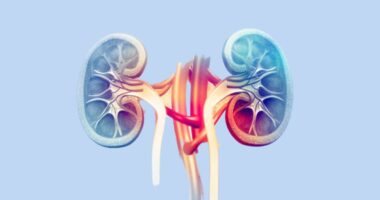Ischemic cardiomyopathy (ICM) is a type of heart disease that develops when the heart muscle does not receive enough oxygen-rich blood. This can be caused by a narrowing or blockage of the coronary arteries, which are the blood vessels that supply the heart with blood. ICM is the most common cause of heart failure in the United States.
The ICD-10 code for ICM is I25.5. This code is used by healthcare providers to diagnose and classify ICM in patients. It is also used by insurance companies to reimburse providers for treating ICM.
This comprehensive guide will provide you with an overview of ICM, including its causes, symptoms, diagnosis, treatment, and ICD-10 code.
What are the Causes of Ischemic Cardiomyopathy?
The most common cause of ICM is coronary artery disease (CAD). CAD is a condition in which the coronary arteries become narrowed or blocked due to plaque buildup. Plaque is a combination of cholesterol, fat, and other substances that can harden over time.
Other causes of ICM include:
- High blood pressure
- Diabetes
- Smoking
- Obesity
- Family history of heart disease
- Certain medical conditions, such as lupus and rheumatoid arthritis
What are the Symptoms of Ischemic Cardiomyopathy?
The symptoms of ICM can vary depending on the severity of the condition. In some cases, people with ICM may experience no symptoms at all. In other cases, people with ICM may experience symptoms such as:
- Shortness of breath
- Chest pain
- Fatigue
- Lightheadedness
- Swelling in the legs and feet
If you experience any of these symptoms, it is important to see a doctor right away. ICM can be a serious condition, but early diagnosis and treatment can improve your prognosis.
Diagnosis
Ischemic cardiomyopathy (ICM) is diagnosed based on a medical history, physical examination, and various tests.
Medical history
Your doctor will ask you about your symptoms, medical history, and risk factors for ICM. Risk factors for ICM include:
- Coronary artery disease (CAD)
- High blood pressure
- Diabetes
- Smoking
- Obesity
- Family history of heart disease
- Certain medical conditions, such as lupus and rheumatoid arthritis
Physical examination
Your doctor will perform a physical examination to check for signs of heart failure, such as:
- High blood pressure
- Fast heart rate
- Abnormal heart sounds
- Swelling in the legs and feet
Tests
Your doctor may order various tests to diagnose ICM, such as:
- Electrocardiogram (EKG): An EKG measures the electrical activity of the heart. It can help to detect signs of heart damage or arrhythmia.
- Echocardiogram: An echocardiogram uses ultrasound to create images of the heart. It can help to assess the size, shape, and function of the heart.
- Stress test: A stress test measures how the heart responds to exercise. It can help to detect signs of coronary artery disease.
- Cardiac catheterization: Cardiac catheterization is a minimally invasive procedure that involves inserting a thin tube into a blood vessel in the groin and threading it up to the heart. This allows the doctor to take images of the coronary arteries and measure blood flow through the arteries.
If the results of these tests suggest that you may have ICM, your doctor may order additional tests to confirm the diagnosis, such as a blood test to check for heart damage markers or a biopsy of the heart muscle.
Once your doctor has confirmed the diagnosis of ICM, they will work with you to develop a treatment plan to manage your condition and improve your quality of life.
How is Ischemic Cardiomyopathy Treated?
The goal of treatment for ischemic cardiomyopathy (ICM) is to improve the heart’s ability to pump blood and reduce the risk of complications. Treatment options include:
Medications
Medications such as beta blockers, ACE inhibitors, and ARBs can help to:
- Lower blood pressure
- Improve blood flow to the heart
- Reduce the workload on the heart
- Prevent blood clots
Other medications that may be prescribed for ICM include:
- Diuretics to remove excess fluid from the body
- Digoxin to strengthen the heart muscle
- Anticoagulants to prevent blood clots
Lifestyle changes
Lifestyle changes can also help to improve heart health and manage ICM. These changes include:
- Quitting smoking
- Eating a healthy diet
- Exercising regularly
- Maintaining a healthy weight
- Managing stress
Medical procedures
Medical procedures may be recommended for ICM if medications and lifestyle changes are not enough to manage the condition. These procedures include:
- Angioplasty and stenting to open narrowed or blocked coronary arteries
- Coronary artery bypass grafting (CABG) to create a new pathway for blood to flow around blocked coronary arteries
- Implantable cardioverter-defibrillator (ICD) to detect and treat life-threatening arrhythmias
- Left ventricular assist device (LVAD) to help the heart pump blood more effectively
- Heart transplant for patients with severe ICM that does not respond to other treatments
The best treatment plan for ICM will vary depending on the severity of the condition and the patient’s individual needs. Your doctor will work with you to develop a treatment plan that is right for you.
In addition to the above, it is also important to follow your doctor’s instructions carefully and attend all follow-up appointments. This will help to ensure that your ICM is being managed effectively and that you are receiving the best possible care.
What is the ICD-10 Code for Ischemic Cardiomyopathy?
The ICD-10 code for ischemic cardiomyopathy is I25.5. This code is used by healthcare providers to diagnose and classify ICM in patients. It is also used by insurance companies to reimburse providers for treating ICM.
The ICD-10 code system is an international system of classifying diseases and related health problems. It is used by healthcare professionals to diagnose and track diseases, as well as for research and reimbursement purposes.
ICM is a type of cardiomyopathy, which is a general term for diseases of the heart muscle. ICM is caused by a reduced blood supply to the heart muscle, which can damage the heart muscle and lead to heart failure.
If you have been diagnosed with ICM, it is important to work with your doctor to develop a treatment plan that is right for you. Treatment options may include medications, lifestyle changes, and medical procedures.
Who Is More Vulnerable?
The following groups of people are more vulnerable to ischemic cardiomyopathy (ICM):
- Men: ICM is more common in men than in women.
- Older adults: ICM is more common in older adults, but it can occur at any age.
- People with coronary artery disease (CAD): CAD is the most common cause of ICM.
- People with high blood pressure: High blood pressure can damage the coronary arteries and increase the risk of ICM.
- People with diabetes: Diabetes can damage the blood vessels throughout the body, including the coronary arteries.
- People with high cholesterol: High cholesterol can contribute to the buildup of plaque in the coronary arteries, which can lead to CAD and ICM.
- People with a family history of heart disease: Having a family history of heart disease increases your risk of developing ICM.
- People who smoke: Smoking damages the blood vessels and increases the risk of CAD and ICM.
- People who are obese: Obesity is a risk factor for many chronic diseases, including CAD and ICM.
Conclusion
ICM is a serious heart condition, but with early diagnosis and treatment, many people with ICM can live long and healthy lives. If you have any of the risk factors for ICM, be sure to talk to your doctor about ways to reduce your risk.
This comprehensive guide has provided you with an overview of ICM, including its causes, symptoms, diagnosis, treatment, and ICD-10 code. If you have any further questions, please do not hesitate to ask your doctor or other healthcare provider.









